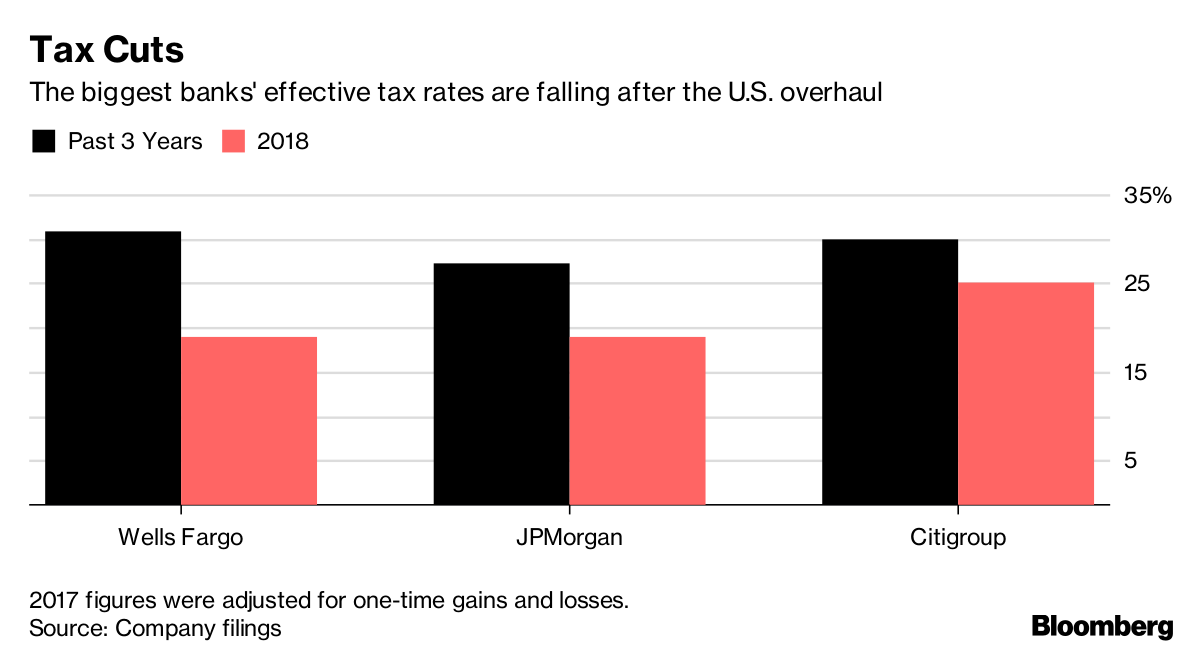As big U.S. banks weigh how to divvy up their windfall from a massive U.S. tax cut, Citigroup Inc.’s approach appears to be set: Shower profits on investors.
Lower tax rates mean the bank can stick to its multiyear plan to pay out at least $60 billion in capital to shareholders even after booking a larger-than-forecast charge of $22 billion to adjust to the new tax regime, the bank said Tuesday. Executives had braced investors last month for a $20 billion hit.
Banks face competing demands for a slice of the gains -- potentially raising pay for staff, cutting prices for clients or plowing more into charity. Wells Fargo & Co. executives said last week they’ll boost donations to a philanthropic foundation, while JPMorgan Chase & Co. leaders said they’re working on a plan to share the tax savings. Citigroup’s statement announcing quarterly results only called out the cash coming investors’ way.
“Tax reform does not change our capital return goals,” Chief Executive Officer Michael Corbat said in the statement. The reform “not only leads to higher net income and increased returns, but also serves to strengthen our capital generation capabilities going forward.”

Citigroup said Tuesday its effective tax rate will probably fall to about 25 percent this year and potentially lower afterward. That’s down from the low 30s. On Friday, JPMorgan forecast a 19 percent rate for this year, but said -- in contrast to Citigroup -- that it will probably tick up after that.
Citigroup and its rivals have spent weeks reviewing their finances and briefing investors on what’s to come after Republicans enacted a plan last month that’s particularly lucrative for the industry. Banks have long paid some of corporate America’s highest effective tax rates, which means they benefit more when rates are reduced. Citigroup’s projections for taxes and payouts were among the bright spots in earnings that broadly met analysts’ estimates.
The bank took a bigger up-front hit from the changes because it had been sitting on a massive pile of deferred-tax assets -- a form of IOU that cuts tax bills. The company had accrued them by suffering losses during the financial crisis, then long touted them as a way to burnish future payouts to investors. But the tax overhaul wiped out almost half of their value.
Fourth-quarter profit at Citigroup’s consumer banking unit rose 9 percent from a year earlier to $1.34 billion, helped by strength in the bank’s foreign operations. Revenue in the Citi-branded cards business rose 1 percent. Earnings at the institutional-clients group, which houses the investment bank and the global payments business, fell 7 percent to $2.2 billion.
Trading revenue declined 19 percent, in line with the “high-teens” drop predicted by Chief Financial Officer John Gerspach in early December. Performance suffered from a $130 million loss in equity derivatives related to a “single-client event,” the bank said, without naming the customer. Excluding that, trading would have slid 16 percent.








